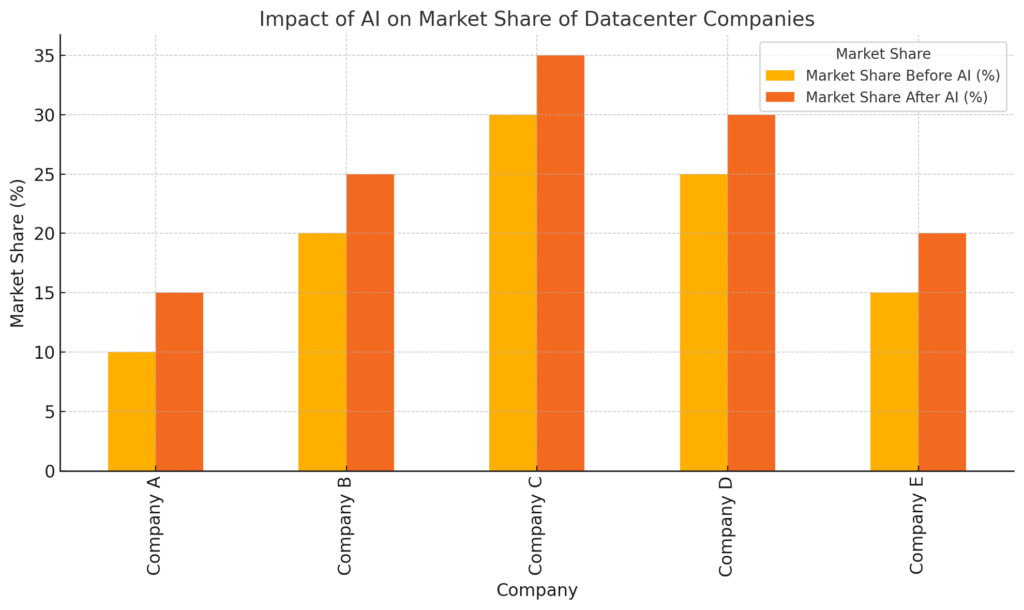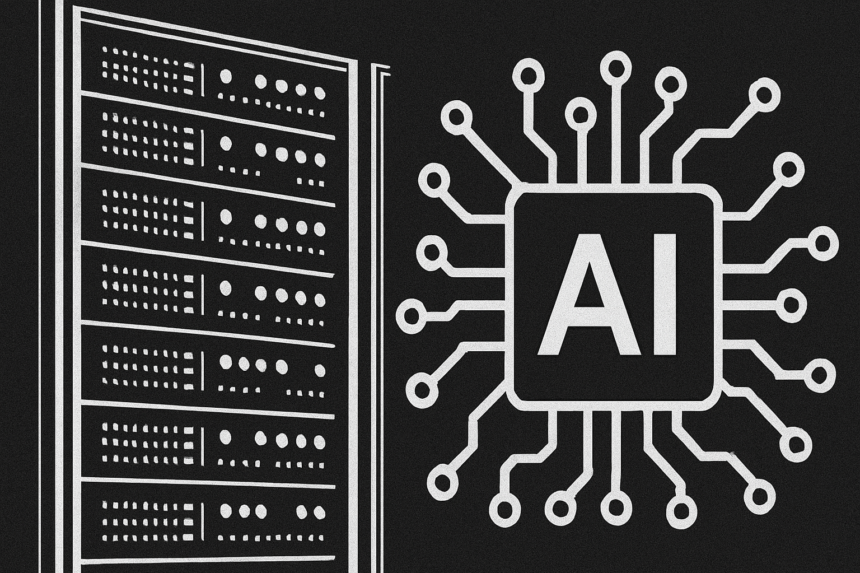10 APR 2025 UPDATE: International Energy Agency (IEA) report estimates energy demands from AI data centres to quadruple by 2030.
As artificial intelligence (AI) and cloud computing continue to reshape industries worldwide, data centers play a pivotal role in supporting these transformative technologies. With demand for AI infrastructure growing, companies and countries are racing to build data centers that can meet the vast computational needs of AI models, machine learning, and big data processing. While some countries, like the US and China, are responsible for developing AI-driven data centers, regions like Africa emerge as essential players in the global data center race. However, each region faces its own set of challenges and opportunities in this rapidly expanding market.
What’s Happening & Why This Matters
The global data center industry is at a crossroads. The increasing demand for cloud computing and AI services pushes companies to expand their infrastructure rapidly. This expansion is especially noticeable in China and the US, where major tech players like Google, Microsoft, and Amazon invest heavily in AI infrastructure to support their vast computational needs.
AI and machine learning models require enormous computing power, so data centers are critical to the equation. The US remains the global leader in the volume of data centers, with Silicon Valley housing some of the most advanced data infrastructure in the world. However, China has rapidly closed the gap by building state-of-the-art data centers to support its booming AI industry. As China’s DeepMind and Baidu continue to innovate in natural language processing and machine learning, its AI-powered data centers are essential to maintaining its competitive edge in the global market.
While the US and China lead the pack, regions like Africa quickly emerge as hotspots for data center investment. According to a recent report, Africa’s data center market is expected to grow at an average rate of 12% per year over the next five years. South Africa, Kenya, and Nigeria are at the forefront of this growth, attracting investments from major cloud providers and tech giants. However, Africa still accounts for less than 1% of the global data center capacity, which shows the vast untapped potential in the region.
The development of data centers in Africa faces unique challenges, particularly regarding energy efficiency and access to renewable resources. In many parts of Africa, energy infrastructure remains underdeveloped, and power outages are common, making it difficult to maintain the 24/7 operation that modern data centers require. Nevertheless, there is growing interest in solar energy and wind power as alternative solutions to help Africa meet the growing demand for AI services and cloud computing.

The improvement in Data center efficiency before and after AI adoption. the number of operations per hour shows how AI can lead to Gains in efficiency. (Credit: A-Word)
The Power and Water Dilemma
One of the most pressing issues facing the global data center industry is the massive energy consumption required to operate these facilities. According to reports, the data center industry accounts for approximately 1% of global electricity consumption. The cooling requirements alone contribute significantly to this high energy usage, as data centers generate substantial amounts of heat from many servers running constantly.
In regions like Spain, Amazon and Microsoft have been building data centers in areas like Aragon, which is experiencing a severe drought. The water consumption required to cool these data centers has raised concerns about the environmental impact, especially in water-scarce regions. While Amazon and Microsoft have pledged to become water-positive by 2030, critics argue that the growing demand for data infrastructure could exacerbate existing issues around water scarcity in areas already struggling to meet agriculture and industrial water needs.

The climate crisis is adding another layer of complexity to this issue. Data centers must find more sustainable solutions as temperatures rise and water sources dwindle. This is why many companies are exploring liquid cooling technologies, which are more energy-efficient than traditional air cooling systems. By using liquid cooling, data centers can reduce their reliance on water and lower energy consumption, helping to reduce their environmental footprint.
TF Summary: What’s Next
The AI race is profoundly impacting the data center industry, with the US, China, and Africa leading the charge in expanding AI infrastructure. However, as demand for cloud computing and AI services continues to grow, the energy consumption and water usage required by data centers are emerging as critical issues. While the US and China invest heavily in building state-of-the-art data centers, Africa’s emerging market presents an opportunity for tech giants to establish AI-driven infrastructure in an underserved region.
The future of data centers will depend on how effectively these challenges are addressed. As energy efficiency and sustainability take center stage, companies must continue innovating in cooling technologies and exploring alternative energy solutions to meet the increasing demand for AI-powered services. In the coming years, data centers in Africa and other emerging markets will play a crucial role in shaping the future of global AI infrastructure, with the potential to bridge the digital divide and unlock new opportunities for growth in the AI industry.
— Text-to-Speech (TTS) provided by gspeech


